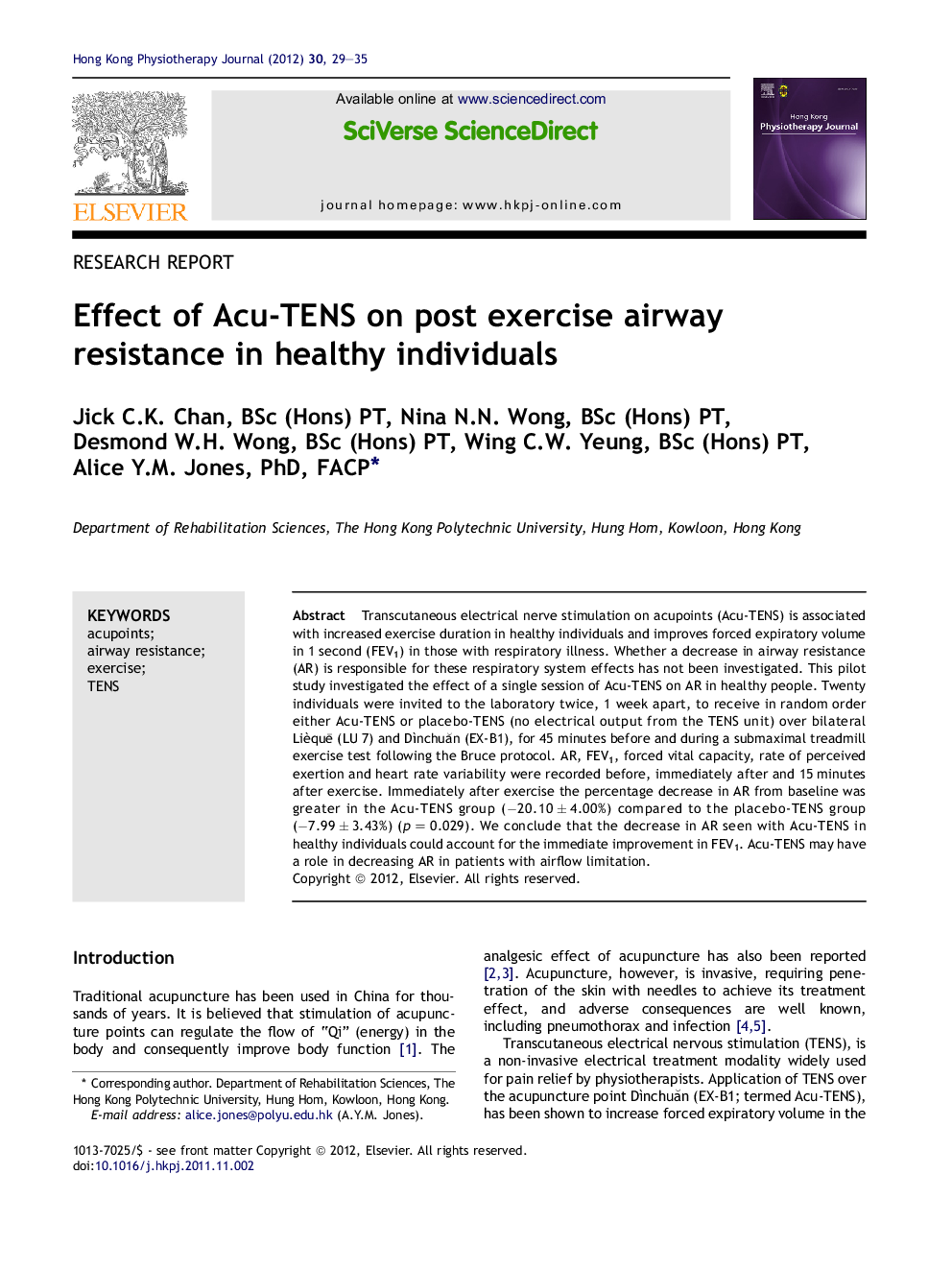| Article ID | Journal | Published Year | Pages | File Type |
|---|---|---|---|---|
| 2618520 | Hong Kong Physiotherapy Journal | 2012 | 7 Pages |
Transcutaneous electrical nerve stimulation on acupoints (Acu-TENS) is associated with increased exercise duration in healthy individuals and improves forced expiratory volume in 1 second (FEV1) in those with respiratory illness. Whether a decrease in airway resistance (AR) is responsible for these respiratory system effects has not been investigated. This pilot study investigated the effect of a single session of Acu-TENS on AR in healthy people. Twenty individuals were invited to the laboratory twice, 1 week apart, to receive in random order either Acu-TENS or placebo-TENS (no electrical output from the TENS unit) over bilateral Lièquē (LU 7) and Dìnchuăn (EX-B1), for 45 minutes before and during a submaximal treadmill exercise test following the Bruce protocol. AR, FEV1, forced vital capacity, rate of perceived exertion and heart rate variability were recorded before, immediately after and 15 minutes after exercise. Immediately after exercise the percentage decrease in AR from baseline was greater in the Acu-TENS group (−20.10 ± 4.00%) compared to the placebo-TENS group (−7.99 ± 3.43%) (p = 0.029). We conclude that the decrease in AR seen with Acu-TENS in healthy individuals could account for the immediate improvement in FEV1. Acu-TENS may have a role in decreasing AR in patients with airflow limitation.
